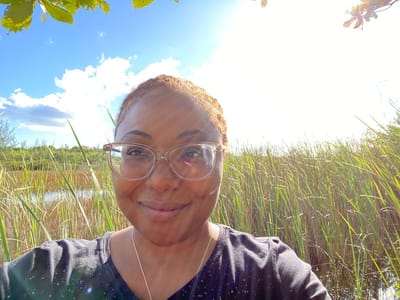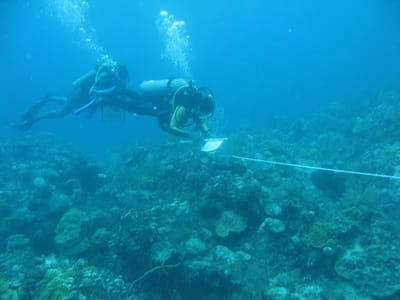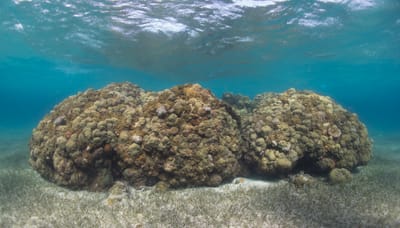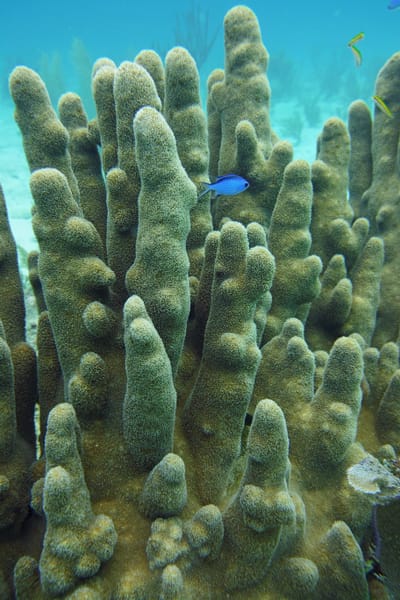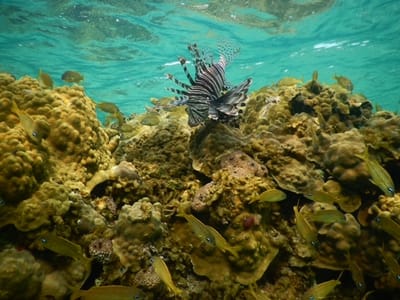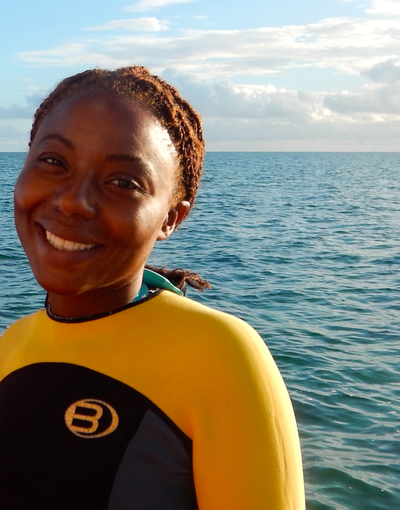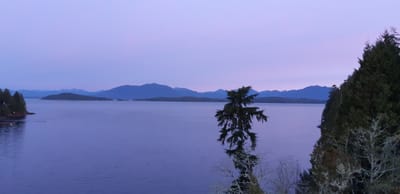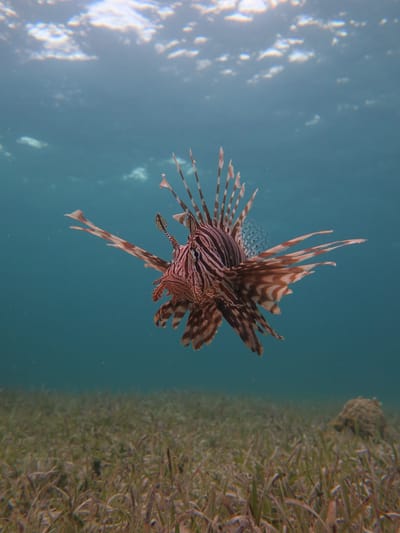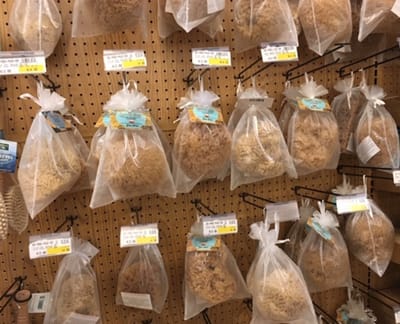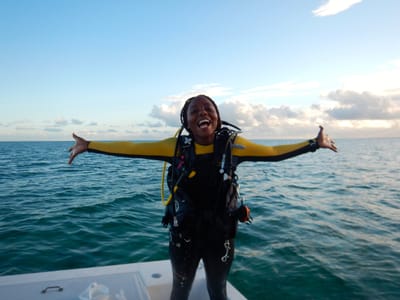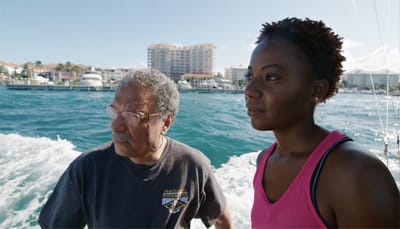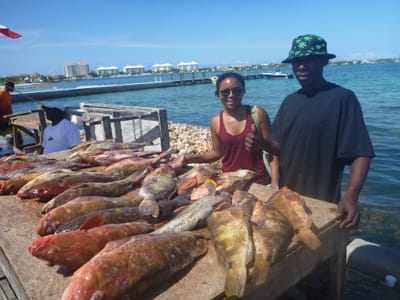Nicola S. Smith
Assistant Professor of Biology, Concordia University
About me
I was formerly a Liber Ero Postdoctoral Research Fellow in the Changing Oceans Research Unit, Institute for the Oceans and Fisheries, University of British Columbia. My research there focused on the effects of climate change on marine invasive species globally. Another project involved working with a team of academics, government and non-governmental organizations, and indigenous groups to develop guidelines to put Canada's ocean economy on the path to net-zero emissions by 2050. Previously, I was a postdoctoral researcher at Simon Fraser University where I reconstructed the sponge fishery of The Bahamas over the past 180 years and conducted marine invasive species risk analyses for the Caribbean.
I obtained a Hons. B.Sc. with High Distinction from the University of Toronto in 2006, where I double majored in English and Zoology. In 2010, I received a M.Sc. in Zoology from the University of British Columbia while in 2020 I obtained a Ph.D. in Biology from Simon Fraser University.
I have over 10 years of experience researching various aspects of biological invasions, coral reef ecology, and tropical fisheries. I have published several studies on the Indo-Pacific lionfish invasion of the Caribbean and on unreported fisheries catches, particularly as it pertains to recreational fishing in the Global South. I have received numerous awards, including a Natural Sciences and Engineering Research Council of Canada (NSERC) Discovery grant, a NSERC Early Career Supplement, the 2018 Bullitt Environmental Prize, a graduate scholarship from the Organization of American States, and a professional development grant from the Society for Conservation Biology, Latin America and Caribbean Section. I have headed two Global Environment Facility/United Nations Environment Programme (GEF/UNEP) funded projects on marine invasive species in the Caribbean.
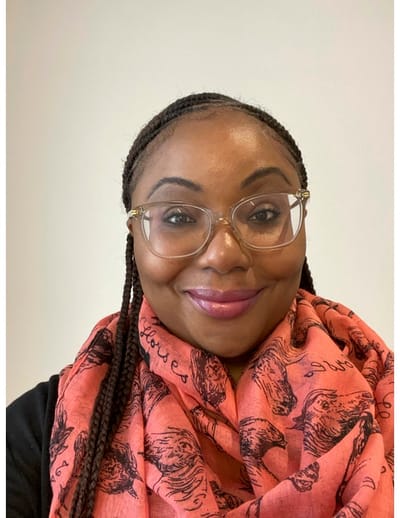
Research
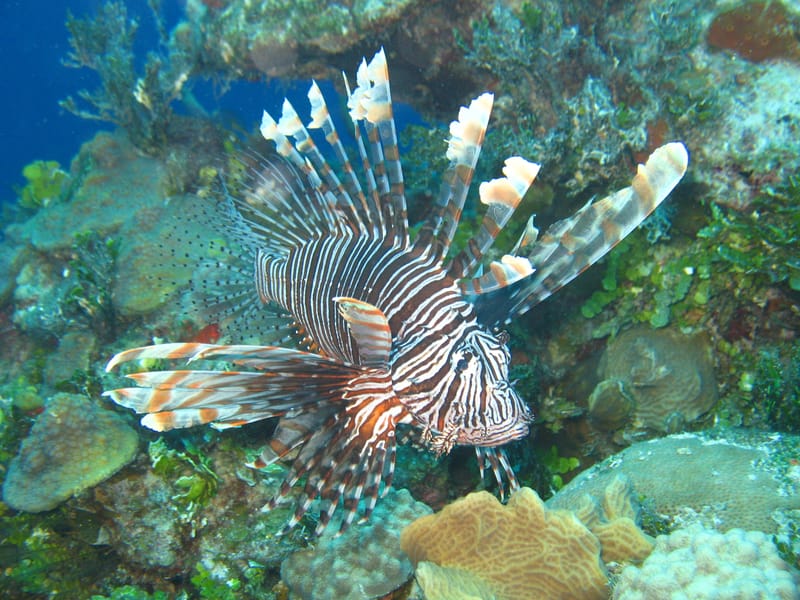
Invasive species and climate change on coral reefs
I am interested in conceptual and applied approaches to marine invasions as well as climate change biology. Currently, I'm investigating the interaction between marine invasive species and climate change, and the effects of climate change on Caribbean coral reefs.
Learn More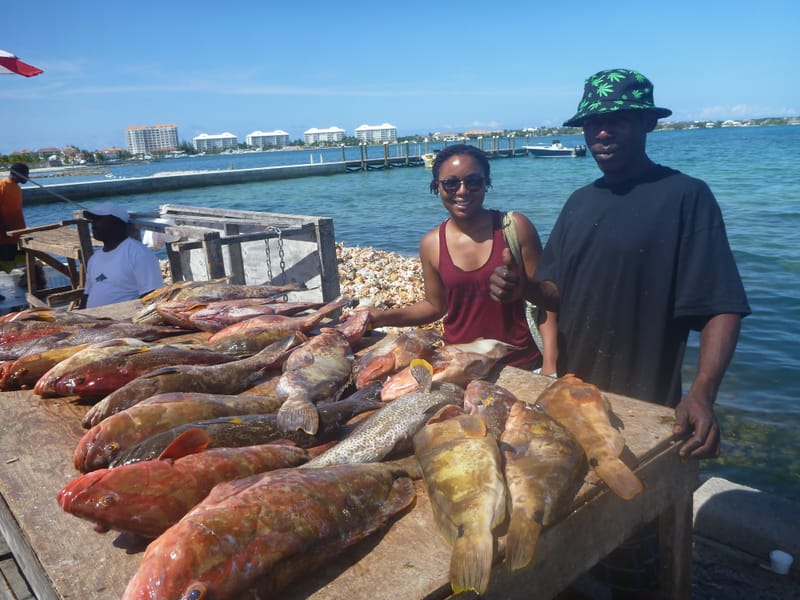
Data-limited tropical fisheries
I use data from a variety of non-traditional information sources to reconstruct fish and invertebrate catches from typically unreported sectors and/or taxa over time periods ranging from 50 to almost 200 years.
Learn More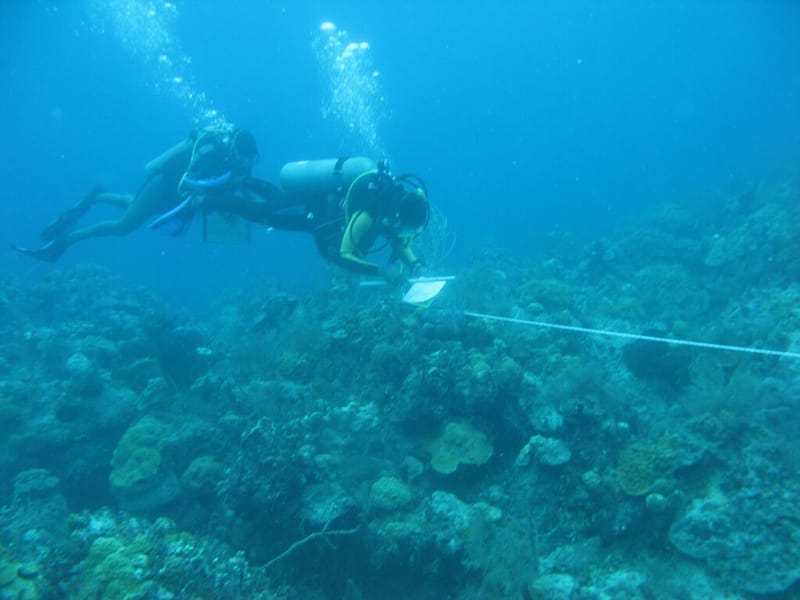
Coral reef ecology
Broadly, I am interested in the factors that shape community structure and function on coral reefs and the internal and external drivers of resilience in these systems to stressors such as climate change and overfishing.
Learn More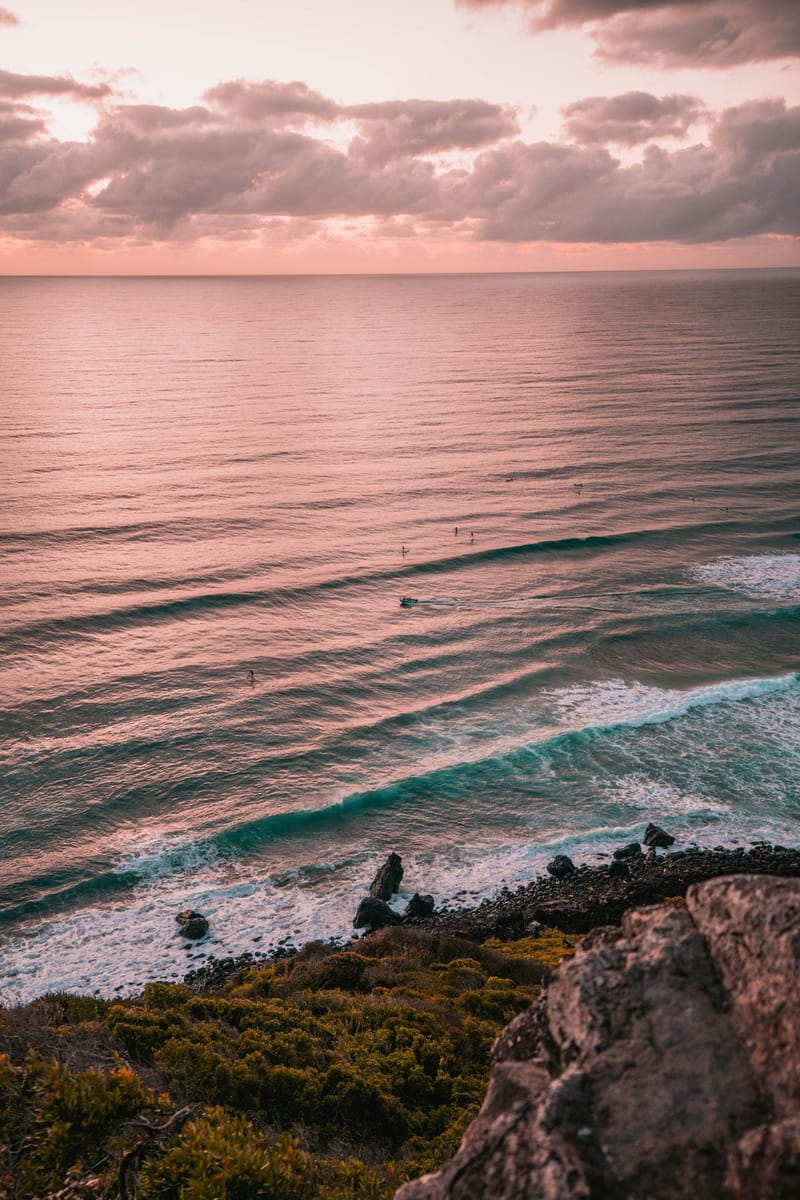
Putting Canada's ocean economy on the path to net zero
The ocean is the world’s largest reservoir of carbon and many marine industries emit greenhouse gases. Yet the ocean economy has traditionally been overlooked in both global and national discussions on greenhouse gas emissions and mitigation. This oversight, however, is being quickly remedied. I am working with a variety of stakeholder groups to develop guidelines to get Canada's ocean economy on the path to net zero by 2050.
Outreach
Read about my newest collaboration to develop a podcast on Ecological Grief in the face of the climate and biodiversity crises.
Read MoreCheck out this short clip on CBC The National in which, along with other scientists, I explain what we will be losing if we lose the world's coral reefs.
Read MoreIn this article for CBC News, I'm interviewed with other scientists on the earth's four mass bleaching event.
Read MoreSee where I've come from and what I've been up to since becoming an Assistant Professor of Biology at Concordia University in Montreal, QC, Canada in this article for Le Devoir journal.
Read MoreInvasive lionfish have now established populations as far south in the western Atlantic Ocean as Brazil. Read my thoughts on this latest discovery in this National Geographic article.
Read MoreEnjoy this podcast from CREEP that includes an interview of me and my personal experiences with this venomous fish along with options on how to help manage this menace.
Read MoreWatch a short video summary of my latest project involving academics, governments and non-governmental organizations, and indigenous groups across Canada.
Read MoreLionfish have few natural predators in their invaded range. Learn how lionfish fear of Caribbean groupers may help save coral reefs in this article for The Conversation Canada.
Read MoreThe history of the sponge fishery in The Bahamas is riddled with periods of fantastic growth, overexploitation, and population collapse. Learn about my quest to reconstruct this fishery over the past 180 years. See the link below starting at 50:20
Read MoreIn celebration of Black History Month, listen to this brief interview with Science World, Vancouver, about how and why I became a Marine Ecologist. I promise that there will be interesting anecdotes!
Read MoreIn this 'sneak peak' to the movie, "An Ocean Mystery: The Missing Catch," in which I am featured, I talk about the impact of tourism on the demand for local fish in The Bahamas.
Read MoreThis movie highlights some of my research done in collaboration with the Sea Around Us at the University of British Columbia, BC, Canada. It shows some of the process involved in gathering data to reconstruct unreported fisheries for The Bahamas from 1950 to 2010.
Read MorePublications
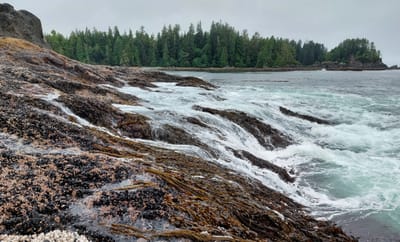
Pauly D, Smith NS and Butler M (2022) Growth and related traits of the sheep wool sponge, Hippospongia lachne: practical and theoretical considerations. Fishery Bulletin 120: 99-112.
Davies SW, Putman HM, Ainsworth TD, Baum JK, Bove CB, Crosby SC, Côté IM, Duplouy A, Fulweiler RW, Griffin AJ, Hanley TC, Hill TM, Humanes A, Mangubhai S, Metaxas A, Parker LM, Rivera HE, Silbiger NJ, Smith NS, Spalding AK, Traylor-Knowles N, Weigel BL, Wright RM and Bates A (2021) Promoting inclusive metrics of success and impact to dismantle a discriminatory reward system in science. PLoS Biology 19(6): e3001282.
Smith NS and Côté IM (2021) Biotic resistance on coral reefs? Direct and indirect effects of native predators and competitors on invasive lionfish. Coral Reefs https://doi.org/10.1007/s00338-021-02117-7
Freire KMF, Belhabib D, Espedido JC, Hood L, Kleisner KM, Lam VWL, Machado ML, Mendonça JT, Meeuwig JJ, Moro PS, Motta FS, Palomares MLD, Smith N, Teh L, Zeller D, Zylich K and Pauly D (2020) Estimating global catches of marine recreational fisheries. Frontiers in Marine Science 7:12. doi:10.3389/fmars.2020.00012
Francis FT, Howard BR, Berchtold AE, Branch TA, Chaves LCT, Dunic, JC, Favaro B, Jeffrey KM, Malpica-Cruz L, Maslowski N, Schultz JA, Smith NS and Côté IM (2019) Shifting headlines? Trends in sizes of newsworthy fishes. PeerJ 7:e6395 doi:10.7717/peerj.6395
Smith NS and Côté IM (2019) Multiple drivers of contrasting diversity-invasibility relationships at fine spatial grains. Ecology 100(2): e02573
Côté IM and Smith NS (2018) The lionfish invasion: Has the worst-case scenario come to pass? Journal of Fish Biology 92:660-689. doi:10.1111/jfb.13544
Smith NS, Côté IM, Martinez-Estevez L, Hind-Ozan E, Quiros A, Johnson N, Green SJ, Cornick L, Shiffman D, Malpica-Cruz L, Gleason Besch A and Shiel-Rolle N (2017) Diversity and inclusion in conservation: a proposal for a marine diversity network. Frontiers in Marine Science 4:234. doi:10.3389/fmars.2017.00234
Malpica-Cruz L, Haider W, Smith NS, Fernández-Lozada S and Côté IM (2017) Heterogeneous attitudes towards lionfish in the Mexican Caribbean: implications for invasive species management. Frontiers in Marine Science 4:138. doi: 10.3389/fmars.2017.00138
Smith NS, Green SJ, Akins JL, Miller S and Côté IM (2017) Density-dependent colonization and natural disturbance limit the effectiveness of invasive lionfish culling efforts.Biological Invasions 19:2385-2399. doi: 10.1007/s10530-017-1449-6
* Media: Anthropocene Magazine, “The trouble with lionfish control” 28 June 2017
Smith NS and Zeller D (2016) Unreported catch and tourist demand on local fisheries of small island states: the case of The Bahamas, 1950-2010. Fishery Bulletin 114:117-131. doi:10.7755FB.114.1.10
* Media: Sport Fishing Magazine, “Bahamas Considers Granting Commercial Fishing Rights to Chinese” 14 Nov 2016
* Media: Inter Press Service (IPS) News Agency, “One Fish, Two Fish, No Fish: Rebuilding of Fish Stocks Urgently Needed” 21 Jan 2016
Hind EJ, Alexander SM, Green SJ, Kritzer JP, Sweet MJ, Johnson AE, Amargós FP, Smith NS and Peterson AM (2015) Fostering effective international collaboration for marine science in small island states. Frontiers in Marine Science 2:86. doi:10.3389/fmars.2015.00086
Côté IM, Darling ES, Malpica-Cruz L, Smith NS, Green SJ, Curtis-Quick J, Layman C (2014) What doesn’t kill you makes you wary? Effect of repeated culling on the behaviour of an invasive predator. PLoS ONE 9(4): e94248. doi: 10.1371/journal.pone.0094248
